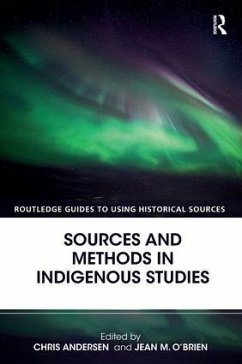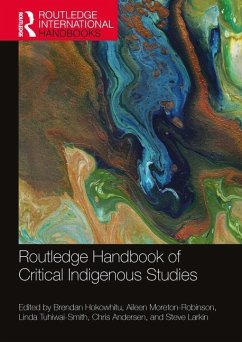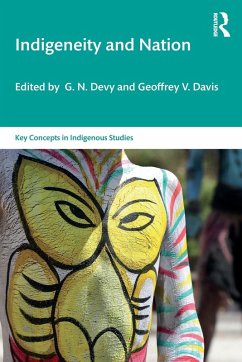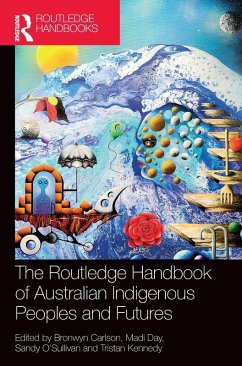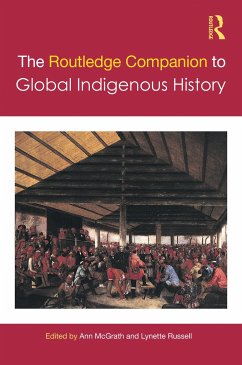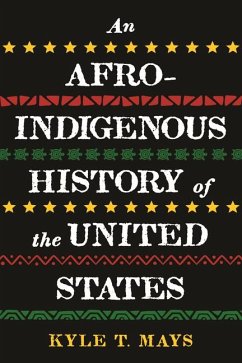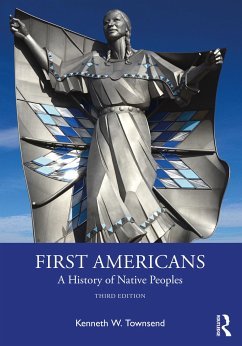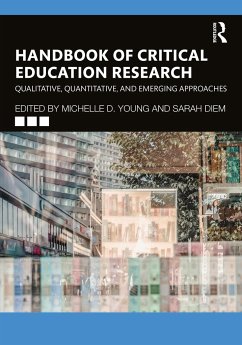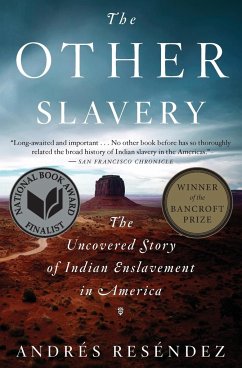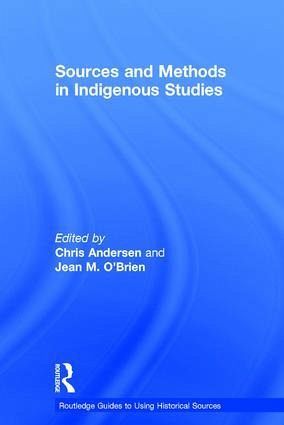
Sources and Methods in Indigenous Studies
Versandkostenfrei!
Versandfertig in 6-10 Tagen
165,99 €
inkl. MwSt.
Weitere Ausgaben:

PAYBACK Punkte
83 °P sammeln!
Sources and Methods in Indigenous Studies is a synthesis of changes and innovations in methodologies in Indigenous Studies, focusing on sources over a broad chronological and geographical range. Written by a group of highly respected Indigenous Studies scholars from across an array of disciplines, this collection offers insight into the methodological approaches contributors take to research, and how these methods have developed in recent years.The book has a two-part structure that looks, firstly, at the theoretical and disciplinary movement of Indigenous Studies within history, literature, a...
Sources and Methods in Indigenous Studies is a synthesis of changes and innovations in methodologies in Indigenous Studies, focusing on sources over a broad chronological and geographical range. Written by a group of highly respected Indigenous Studies scholars from across an array of disciplines, this collection offers insight into the methodological approaches contributors take to research, and how these methods have developed in recent years.
The book has a two-part structure that looks, firstly, at the theoretical and disciplinary movement of Indigenous Studies within history, literature, anthropology, and the social sciences. Chapters in this section reveal that, while engaging with other disciplines, Indigenous Studies has forged its own intellectual path by borrowing and innovating from other fields. In part two, the book examines the many different areas with which sources for indigenous history have been engaged, including the importance of family, gender, feminism, and sexuality, as well as various elements of expressive culture such as material culture, literature, and museums. Together, the chapters offer readers an overview of the dynamic state of the field in Indigenous Studies.
This book shines a spotlight on the ways in which scholarship is transforming Indigenous Studies in methodologically innovative and exciting ways, and will be essential reading for students and scholars in the field.
The book has a two-part structure that looks, firstly, at the theoretical and disciplinary movement of Indigenous Studies within history, literature, anthropology, and the social sciences. Chapters in this section reveal that, while engaging with other disciplines, Indigenous Studies has forged its own intellectual path by borrowing and innovating from other fields. In part two, the book examines the many different areas with which sources for indigenous history have been engaged, including the importance of family, gender, feminism, and sexuality, as well as various elements of expressive culture such as material culture, literature, and museums. Together, the chapters offer readers an overview of the dynamic state of the field in Indigenous Studies.
This book shines a spotlight on the ways in which scholarship is transforming Indigenous Studies in methodologically innovative and exciting ways, and will be essential reading for students and scholars in the field.





